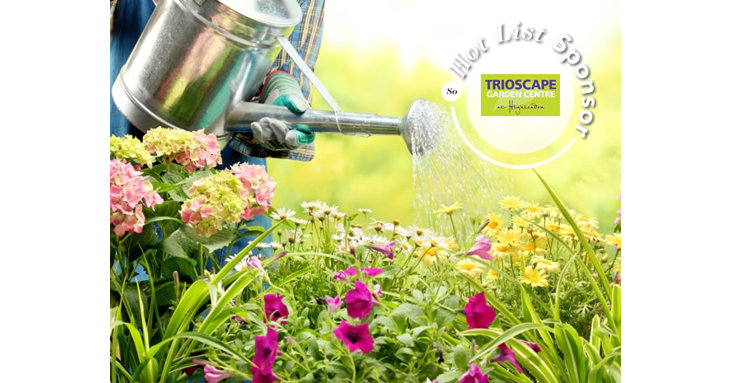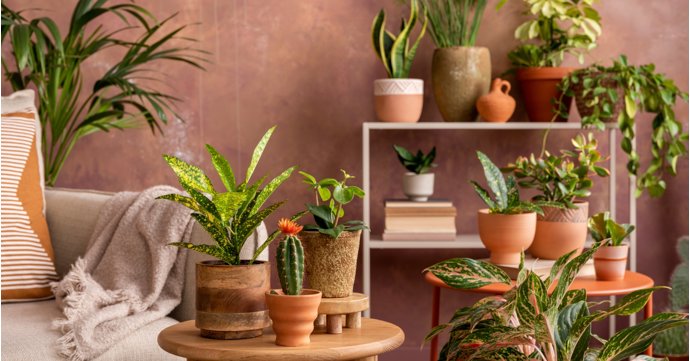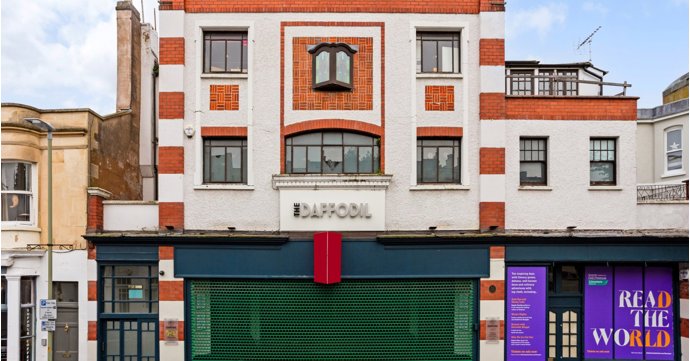If you’re a complete novice when it comes to horticulture, fear not, as our beginner’s guide to gardening, sponsored by Trioscape, offers plenty of tips to help you transform your outside space.
From learning about soil types and advice on planting, to essential tools and garden maintenance, you’ll be channelling your inner Monty Don in no time at all.
For more advice and the chance to pick up plants, bulbs, containers, fertilisers and much more, head to Trioscape Garden Centre in Newent, where the qualified and friendly staff are on hand to answer any of your gardening queries.
Visit trioscape.co.uk directly for further details.
Do your research
Whether you’re planning a complete overhaul or are simply giving your patio a little makeover, it pays to do some research to help determine what you want to do with your outside space before getting carried away.
Pinterest is a great tool for building up a virtual mood board of ideas and once you’ve started pinning images you’ll soon get an idea of the style of garden you like, be it formal, contemporary or traditional English country.
You’ll also need to consider what you’re going to use your garden for, as this will help with deciding how to maximise the space. Think about whether you require a lawn or a play area for children; if you’d like outdoor seating and space for entertaining; and whether you want to grow fruit and veg.
Another thing to bear in mind is how much time you have to dedicate to developing and maintaining your garden, as this will dictate the type of plants you choose. You’ll also want to take note of which way your garden faces so you can get an idea of the shady and sunny areas, and where the sun will be in the mornings and evenings.
Before you get started
It’s very important to know if your garden’s soil type is sand, silt, peat, clay, chalk or loam as different plants thrive in particular soils, so you’ll definitely want to find this out before hitting the garden centre.
Sandy soil is very free-draining and easy to dig, but nutrients are washed away easily and plants will need regular watering as the soil tends to try out very quickly. Silty soil is free-draining but retains water and is fertile, meaning most plants tend to do well in this soil.
Clay soil retains moisture but is hard to dig and can get waterlogged, and when it’s very dry, it becomes very hard-baked. Loam soil, which features a good balance of sand and clay, is rich in plant nutrients making it a gardener’s best friend.
The way to find out the type is by touching it, as clay soil is sticky when wet; sandy soil feels gritty; and pure silt soils, which are rare, have a slippery texture. You can also invest in a simple soil testing kit from your garden centre, which will give you a pH reading that tells you the level of acidity or alkalinity in the soil, so you can buy plants accordingly.
Kit to invest in
Having the right tools for the job makes planting and maintaining your garden much easier, so it’s a good idea to visit the garden centre to stock up on essential items.
Add a hand trowel, fork, and spade, preferably with stainless steel hands; a pair of durable gloves; a hose; a rake; loppers, which are useful for trimming trees and shrubs; a pair of secateurs; and a wheelbarrow which is essential if you’re moving a lot of earth, to your shopping list.
If you’re short on outdoor space for beds, then you’ll want to get some pots, which are a perfect way to transform patio gardens into a horticultural haven. There’s a huge amount of choice when it comes to containers, with all manner of styles and materials – including ceramic, terracotta, stainless steel and stone.
What to plant
The fun part is deciding what to fill your garden with, but before doing a trolley dash in the garden centre, it’s useful to learn about the different types of plants so you’re not disappointed when they don’t reappear come spring!
Annual plants only live for one growing season but they tend to flower for a long time so you can enjoy plenty of colour in your garden. Trioscape, which has its own nursery and growing area, stocks hardy annuals that can be sown from March onwards, and half-hardies, which need to be sown under cover as they don’t like frost.
Perennials, the most easy-going of all the plant groups, are free-flowering plants which die down in winter and reappear in spring, before peaking in midsummer with an explosion of beautiful colour. Trioscape has an array of perennials in stock according to the season, and the experienced team can advise which are best suited to different areas of the garden.
While many think bulbs are just for spring, it’s possible to have flowering bulbs in your garden year round with a bit of forward planning. Spring bulbs include crocuses, daffodils, hyacinths and tulips; summer varieties span dahlias, lilies and irises; autumn-flowering bulbs include saffron crocuses and exotic-looking gladiolus; while winter-flowering irises provide a cheery splash of yellow in December.
How to plant
You’ll want your plants to have the best start in life so it pays to know a few tips before sinking your spade in the ground. If you’re planting a border or a range of pots, it’s helpful to work out what you’d like to go where, thinking about which colours might looks nice together and different heights.
Once you’ve decided where to plant it, dig a hole that’s slightly bigger than the pot size, put the soil to one side and add a bit of compost and bonemeal to the hole. Soak the roots in a bucket of water and then turn the pot upside down to ease it out of the container.
Place the plant in the hole, making sure it’s the same height as the soil in the bed or container, before adding the extra soil and pressing firmly around the base. Give it a good water before sitting back and admiring your handy work!
Maintenance
After putting in all the hard work, you’ll want to ensure that you maintain your garden so that it looks healthy. During the summer months you’ll need to water potted plants daily, sometimes twice, and ideally early in the morning and the evening.
Keep your plants looking pretty and encourage more blooms by deadheading faded or dead flowers on a regular basis, with bedding plants responding particularly well to some TLC.
Weeds can easily take over and steal water and nutrients from garden plants so keep an eye on any offenders, which are often prone to colonise bare patches of soil. Mulch, such a chipped bark and well-rotten stable manure, prevent annual weed seeds from germinating, while weekly hoeing keeps persistent weeds at bay.
Slugs and snails are the enemy of gardeners, with the slippery pests fond of munching through everything from hostas to lettuce. Barriers, such as copper rings or a layer of grit, make it difficult for slugs and snails to slime up pots or across beds, while garlic is also a good natural deterrent.
For more information see Trioscape Garden Centre, call (01452) 790550, email gardencentre@trioscape.co.uk or visit trioscape.co.uk directly.





















